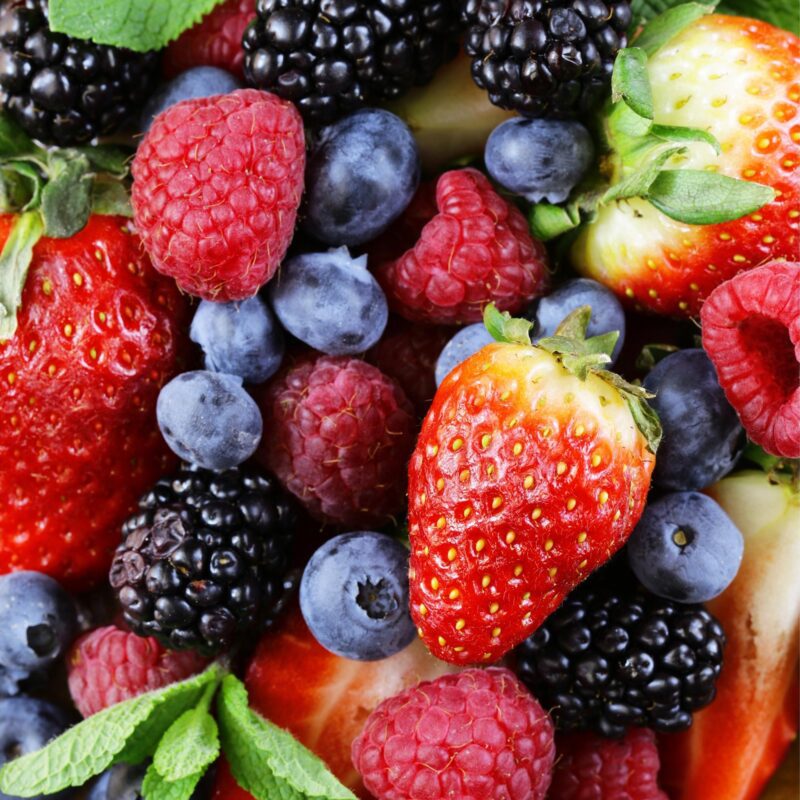
Les baies sont nutritives et considérées comme bénéfiques pour la santé, y compris la santé du cerveau.
Juste après avoir monté les escaliers, vous entrez dans une pièce et parcourez les murs du regard. Vous faites une pause et vous vous dites : “Qu’est-ce que je suis venu faire ici ?” Cela nous arrive à tous et constitue un rappel subtil du déclin de nos fonctions cérébrales à mesure que nous vieillissons. Nombreux sont ceux qui se demandent comment éviter le désagrément des oublis quotidiens, en plus d’améliorer la santé globale de notre cerveau. Au-delà du maintien d’une bonne santé en général, certains chercheront des réponses dans les puzzles sudoku, les applications d’entraînement de la mémoire et les suppléments intéressants. Cependant, les plaisirs simples des fruits quotidiens sont souvent négligés lorsqu’il s’agit de la fonction cérébrale !
Outre leur goût sucré, les fruits regorgent d’antioxydants. Ces antioxydants neutralisent les radicaux libres toxiques qui sont un sous-produit des réactions chimiques quotidiennes de l’organisme nécessaires au maintien de la vie. Les chercheurs postulent que les radicaux libres pourraient être la cause biochimique de diverses maladies, notamment les accidents vasculaires cérébraux et Alzheimer’s. Overconsumption of antioxidants may be harmful as well, but it would be near impossible to consume too many from just fruits, vegetables, and spices alone. While there is no official recommendation for the number of antioxidants to eat daily, most Americans generally fall short. Wild blueberries can help us close the gap though, as one cup may have more antioxidants than any other berry, depending on the species.
Does this make blueberries the best berry though? In addition to a high antioxidant content, numerous studies have shown various health benefits, specifically regarding cognition. An article published in the journal, Annals of Neurology, showed that regular dietary intake of blueberries reduced cognitive decline, even after controlling for several confounding variables.
Furthermore, another study in the European Journal of Nutrition found that wild blueberry consumption improved verbal memory, word recognition, and response inhibition in children after 1 and 3 hours. The study illustrated a dose-dependent effect, meaning that the more blueberries the children consumed, the better they performed on the brain cognition tests.
Older adults can indulge in the benefits from blueberries too, as an article from the Journal of Agriculture and Food Chemistry demonstrated cognitive benefits from daily blueberry consumption, in addition to improving mood and blood sugar levels as well. These benefits are likely from the specific anthocyanin components in blueberries, which work to reduce inflammation in the brain and body.
So, which berry is the best for brain health? Probably whichever berry you would eat the most of, since most edible berries have a variety of health benefits and a high antioxidant quantity. Regardless, there is copious, high quality scientific evidence on the benefits of blueberries, making them a fridge essential for anyone mindful of their brain health.
References:
- Devore, Elizabeth E et al. “Dietary intakes of berries and flavonoids in relation to cognitive decline.” Annals of neurology vol. 72,1 (2012): 135-43. doi:10.1002/ana.23594
- Krikorian, Robert et al. “Blueberry supplementation improves memory in older adults.” Journal of agricultural and food chemistry vol. 58,7 (2010): 3996-4000. doi:10.1021/jf9029332
- Whyte, Adrian R et al. “Cognitive effects following acute wild blueberry supplementation in 7- to 10-year-old children.” European journal of nutrition vol. 55,6 (2016): 2151-62. doi:10.1007/s00394-015-1029-4



